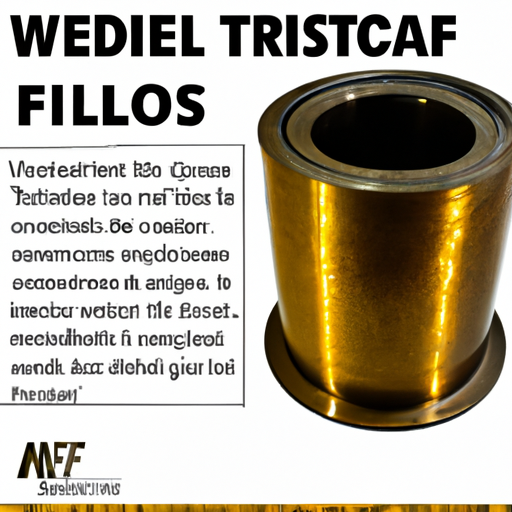Hastelloy is a widely used corrosion-resistant alloy known for its excellent strength and durability. When it comes to welding this challenging metal, selecting the right filler metal is crucial for achieving optimal results. In this article, we will explore the best filler metals for welding Hastelloy, providing you with valuable insights and recommendations from welding experts. Whether you are a professional welder or simply interested in the world of welding, this article will serve as a reliable source of information to enhance your understanding of welding Hastelloy and ensure successful welding outcomes.
Best Filler Metals for Welding Hastelloy
Introduction
When it comes to welding Hastelloy, choosing the right filler metal is crucial for achieving strong and reliable welds. Hastelloy is a group of nickel-based alloys known for their high resistance to corrosion, heat, and pressure. It is commonly used in industries such as aerospace, chemical processing, and oil and gas.
In this article, we will explore the best filler metals for welding Hastelloy and discuss their properties, applications, and benefits. Whether you are a professional welder or a beginner looking for information, this guide will serve as an authoritative resource to help you make informed decisions in your welding projects involving Hastelloy.
Key Considerations for Choosing Filler Metals
Before we delve into the specific filler metals for welding Hastelloy, it is essential to understand the key considerations when making your selection. These considerations will help you choose the right filler metal that suits your welding requirements:
-
Compatibility: Ensure that the filler metal is compatible with the base metal, Hastelloy in this case, to achieve a proper metallurgical bond.
-
Corrosion Resistance: Hastelloy alloys are renowned for their excellent resistance to corrosion in highly corrosive environments. The chosen filler metal should possess comparable corrosion resistance to ensure the integrity of the weld joint.
-
Mechanical Properties: Consider the desired mechanical properties of the weld, such as strength, ductility, and toughness. The filler metal should provide adequate strength while maintaining the desired properties of the Hastelloy alloy.
-
Welding Process: Different welding processes, such as TIG (Tungsten Inert Gas) welding or MIG (Metal Inert Gas) welding, require specific filler metals. Select a filler metal that is suitable for your chosen welding process.
Having these key considerations in mind, let us now discuss the best filler metals for welding Hastelloy.
H2: Filler Metals for TIG Welding Hastelloy
H3: Hastelloy W
Hastelloy W is a solid solution-strengthened nickel-based alloy with excellent corrosion resistance and mechanical properties at high temperatures. It is often used in severe environments involving strong acids, chlorides, and reducing chemicals. Hastelloy W filler metal is specifically designed for TIG welding applications.
Key benefits of using Hastelloy W filler metal for TIG welding Hastelloy include:
- High resistance to pitting and crevice corrosion
- Excellent resistance to stress corrosion cracking
- Superior weldability and heat-affected zone properties
- Consistent mechanical properties after welding
H3: Hastelloy C-276
Hastelloy C-276 is a popular nickel-molybdenum-chromium alloy renowned for its exceptional corrosion resistance. It performs well in both oxidizing and reducing environments, making it suitable for various applications involving strong acids, seawater, and chemical processing plants. Hastelloy C-276 filler metal is widely used for TIG welding Hastelloy alloys.
Benefits of using Hastelloy C-276 filler metal for TIG welding Hastelloy include:
- Outstanding resistance to localized corrosion, including pitting and crevice corrosion
- Excellent resistance to stress corrosion cracking and corrosion fatigue
- Enhanced weldability with low heat input
- Retains mechanical properties in the as-welded condition
H2: Filler Metals for MIG Welding Hastelloy
H3: Hastelloy X
Hastelloy X is a nickel-chromium-iron-molybdenum alloy designed for extreme high-temperature applications. It offers excellent oxidation resistance and high strength at elevated temperatures. Hastelloy X filler metal is primarily used for MIG welding applications involving Hastelloy alloys.
Key benefits of using Hastelloy X filler metal for MIG welding Hastelloy include:
- Exceptional resistance to high-temperature oxidation and carburization
- High strength and toughness at elevated temperatures
- Good weldability and minimal hot cracking
- Maintains excellent mechanical properties in the as-welded condition
H3: Hastelloy G-30
Hastelloy G-30 is a nickel-chromium-iron alloy with significant additions of copper and molybdenum. It is known for its excellent resistance to both sulfuric and phosphoric acids, making it suitable for applications in the chemical processing industry. Hastelloy G-30 filler metal is commonly used for MIG welding Hastelloy alloys.
Benefits of using Hastelloy G-30 filler metal for MIG welding Hastelloy include:
- Superb resistance to corrosion in highly acidic environments
- High resistance to chloride-induced stress corrosion cracking
- Good weldability and low hot cracking susceptibility
- Maintains mechanical properties in the as-welded condition
H2: Conclusion
Choosing the best filler metals for welding Hastelloy is essential for achieving strong, corrosion-resistant welds. The filler metals mentioned in this article, such as Hastelloy W, Hastelloy C-276, Hastelloy X, and Hastelloy G-30, are widely used and trusted in the welding industry for their excellent properties and performance.
Before finalizing your filler metal selection, remember to consider factors such as compatibility, corrosion resistance, mechanical properties, and the welding process. Consulting with welding experts or referring to manufacturer guidelines will further assist you in making an informed decision.
By selecting the appropriate filler metal and adhering to recommended welding practices, you can ensure the integrity and longevity of your Hastelloy weldments. Whether you are working on aerospace components, chemical processing equipment, or oil and gas applications, the right filler metal will play a vital role in achieving successful and reliable welds in Hastelloy.

